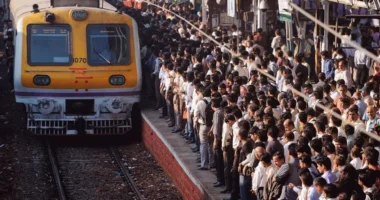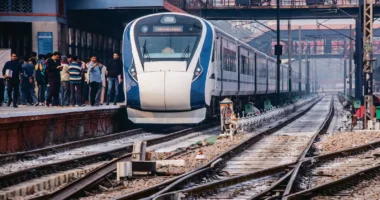Understanding the Issue: Why Accurate Train Data is Crucial
Before delving into the ramifications and actions being taken, it’s essential to understand why accurate train data holds immense importance in the railway ecosystem:
- Passenger Convenience: Accurate schedules and information ensure passengers can plan their travel without disruptions.
- Operational Efficiency: Running trains on precise schedules helps in optimal utilization of resources and minimizing delays.
- Safety: Incorrect data can lead to operational inconsistencies, posing potential safety hazards.
Unfortunately, the dissemination of inaccurate information disrupted these core facets, prompting immediate attention and corrective action from higher authorities.
Directive from the Top: A Call for Accountability
The recent directive came after several instances where train data discrepancies were reported, ranging from incorrect train timings to miscommunication regarding train routes. The consequences of such errors could potentially lead to:
- Passenger Discomfort: Leading to frustration and the erosion of trust in the railways system.
- Compounded Delays: Affecting succeeding train schedules and indirectly leading to a domino effect in operations.
- Reputational Damage: Causing a decline in public trust and credibility.
Such scenarios place an undue burden on both passengers and the system alike, mandating immediate intervention.
The Actions Envisaged: Enhancing Accuracy and Efficiency
In response to these setbacks, the Indian Railways has set a multi-pronged strategy focusing on several key areas:
- Education and Training: Providing relevant training sessions to staff at various levels ensures data accuracy and improves operational awareness.
- Improved Auditing Measures: Periodic checks and audits are recommended to ensure information accuracy across the board.
- Technological Integration: Investing in advanced technology for efficient data management and real-time updates.
By harnessing these strategies, the Railways aims to establish a more robust, resilient system that minimizes the room for error while maximizing operational efficiency.
Holding Officials Accountable: A Deterrent for Future Errors
An additional layer of this action plan involves holding railway officials accountable for any discrepancies noted. This approach serves multiple purposes:
- Deterrent Against Future Errors: Ensuring stringent consequence for inaccuracies fosters a culture of responsibility and diligence.
- Increased Vigilance: Officials are likely to exercise greater caution and attentiveness in managing and relaying data.
- Alignment with Organizational Goals: Reinforces the importance of aligning individual responsibilities with larger organizational goals.
Through holding individuals accountable, the Indian Railways envisions a future where errors are minimized, and performance, teamwork and trust are optimized for all stakeholders.
The Role of Technology: An Opportunity for Transformation
Technology plays a pivotal role in transforming traditional data management mechanisms, and Indian Railways has begun to embrace this potential:
- Real-Time Data Tracking: Implementation of automated systems ensures real-time updating of schedules and train-related information.
- Data Analytics: Utilizing data analytics tools to predict trends and adjust operations proactively.
- Stakeholder Integration: Integration of systems that promote synchronization between train operators, stations, and passengers for seamless information flow.
This shift towards technology not only aids in reducing manual errors but also enhances the overall passenger experience by providing updated information promptly.
The Path Forward: Rebuilding Trust and Ensuring Reliability
In an era where accurate data is the backbone of any service-driven organization, the Indian Railways acknowledges the criticality of addressing data inaccuracies and is committed to a path of reform and modernization. Moving forward, the emphasis is on:
- Transparency: Ensuring open communication channels between railway officials and passengers.
- Continual Improvement: Regular assessment and updating of processes to align with best practices.
- Stakeholder Engagement: Engaging all stakeholders, from top-level decision-makers to passengers, in a collaborative effort to enhance service quality.
Through these sustained efforts, the Indian Railways aspires to reaffirm its role as a trusted and reliable transport service provider, serving millions across the nation efficiently and effectively.
The resolution to prioritize accuracy and accountability marks a significant milestone in the Indian Railways’ commitment to operational excellence and customer satisfaction, setting the stage for continuous improvement and steadfast progression.
“`







